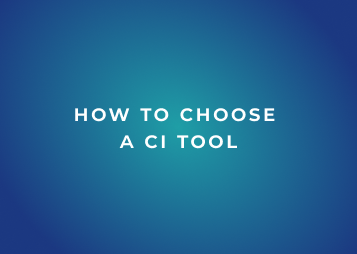As a founder myself, I know the feeling of wanting to deliver a product or service with all the best intentions, praying for it to be perceived and experienced in a certain way. But without the voice of the customer, you can't know if you are achieving what is expected by your customer and whether you are truly satisfying the market need.
With analysis, businesses can use the voice of customer to make more informed strategy decisions. It is a key component in any customer-centric business, underpinning many first-mover and highly-competitive business decisions.
Here, we'll explore:
What is the voice of customer?
What is a voice of customer program?
The business benefits of voice of customer
How to implement a voice of customer program
How to action voice of customer insights
How to automate voice of customer insights
What is voice of customer?
Voice of customer (VoC, or voice of the customer) is any information or data that reflects your customer's thoughts, feelings, perceptions and words.
It is made up of:
- text (what the customer actually said)
- sentiment (what they meant by it or felt at the time)
These categories also include customer expressions or intonation, what they got excited by, what they do and don’t want, and their expectations of a product or service.
VoC can be acquired through numerous means, including:
- Sales call recordings or customer support call recordings
- Customer surveys
- Market surveys
- Customer focus groups
- Reviews
- Live chat conversations
- Net promoter scores
- Social media mentions

What is a voice of customer program?
A Voice of Customer program is an organized approach to capturing, analyzing, communicating and actioning the voice of customer. The program creates structures to act on these insights, allowing companies to align their products, services, and customer interactions with what their customers truly value.
For companies like Cision, a global leader in media intelligence, implementing a VoC program with Jiminny's conversation intelligence platform has been transformative. Cision captured in-depth customer feedback directly from their conversations, analyzing and visualizing data to identify trends and areas for improvement. This led to more nuanced and actionable insights, so Cision could tailor their approach to meet and exceed customer expectations, driving continuous improvement and growth.
Lucy Illidge, Head of CX Operations & Strategy for EMEIA at Cision, said "It's added that next level of detail and insight that really puts us in the room with our customers." Find out more about Cision's voice of customer program here.
What are the business benefits of voice of customer?
Sales, Customer Success, Marketing, Operations and Product Development teams can all benefit from VoC data.
Benefits of voice of customer for Sales teams
- Remain competitive by learning about market changes and customer behavior sooner than the competition.
- Improve customer relationships through mutual understanding.
- Enhance sales forecasting, with better accuracy for likely new customers and repeat purchases.
- Align sales language, messaging and processes with the needs of the customer, to increase conversion rates.
Benefits of voice of customer for Customer Success and Support teams
- Monitor early warning signs for customer dissatisfaction and churn risk, and create strategies for retention.
- Research and identify stages of the customer journey, optimizing upsell opportunities.
- Identify pain points and improve customer service through more tailored and relevant interactions.
- Nurture customers, by proactively addressing any concerns or issues.
Benefits of voice of customer for Product Development teams
- Understand user expectations and experience of product quality
- Proactively develop new products and services, based on genuine market demand.
- Understand nuances in user behavior and psychology to tailor new features and updates.
- Improve product UI, UX, and consequently, user adoption with better product market fit.
- Understand weaknesses in competitors' products, to highlight future opportunities.
Benefits of voice of customer for Marketing teams
- Evolve marketing messaging, to align with customer language.
- Adjust the sales and marketing funnel to reflect buying preferences.
- Create more targeted marketing campaigns that resonate with specific customer segments.
- Achieve good PR from the market perception that customers are listened to and feedback is acted on.
- Improve brand image as products and services align more closely with market needs.
Note: Every activity and process comes with a cost. So the voice of customer must always be weighed against the other voices an organization hears; voice of process, voice of employee and voice of business. These voices are often in conflict with each other and a trade-off is required. So when implementing a VoC program, know when and when not to act on the VoC priority.
How to implement a voice of customer program
VoC programs can be implemented in a business either from the top down or the ground up and benefits can be seen from even the most modest program. That said, those on the ‘front lines’ of the business, who interact with customers every day, will play a crucial role in acquiring and documenting the crucial information. If those at the top of an organization want to make strategic decisions based on customer needs, they need the VoC from the front liners.
In its most basic sense, a sales rep reporting feedback from a customer call back to the Marketing or Product team is a VoC activity. The more you scale this feedback loop, the more benefits will be achieved.
As mentioned, there are many ways to capture and harness voice of customer. Call recording software is a great place to start, to retain more detail and better act on customer interactions.
Adding conversation intelligence and revenue intelligence will then deepen your understanding. Get to know your customers’ greatest challenges, surprising use cases or new behaviors in the market. These tools highlight trends in customer preferences, market perception and deal and churn risks.
To get the most from a VoC program, it’s a good idea to define some questions you would like to answer, for example:
- Do customers feel loyal to our brand and why?
- Do our products and services meet the need we are setting out to meet?
- What is the fundamental value customers see in our product, and is it the same as what we perceive it to be?
- Does the language we use match the language used by our customers?
- What product or service do our customers want to see next in the market?
- Which area would it be most beneficial to improve, from the customer’s point of view?

How to action voice of customer insights
However big or small your VoC program, it will deliver valuable insights - it’s then up to you what you do with them. If your C-suite are invested in the program, you may like to create a report of findings and action plan of how they will be acted on.
Note: A VoC program will inevitably create more than one area of your business that needs work - and that’s a good thing. What’s important is to identify the priority areas to improve first and ensure every department is aligned towards this priority, to avoid creating silos.
Once you know which areas of insight you are going to act on first, team brainstorms can be a great way to find solutions. Issues highlighted in VoC programs often require lots of heads working together and creating out-of-the-box ideas, equipped with the fresh customer perspective you now have, so don’t be afraid to discuss ideas in new territory. Create a safe space for new ideas and give each one the time to be openly discussed without judgement.
When you have created some options, test them out in a focus group or a beta environment to gather further VoC information and trial their market viability.
Automating voice of customer insights - the gamechanger
Get notified - conversation intelligence tools allow you to automate impactful voice of customer operations. VoC is not a once-and-done operation. Customer perceptions and sentiment evolve with the market, so if you’re serious about it, you need to keep on top of it on an ongoing basis.
So make it easy for yourself. Record your calls as standard, then create a notification for certain words of topics your customer mentions. For example, whenever a customer discusses 'budget' or 'product feature X' in calls with your team.
Receiving this alert, you can keep on top of trending topics or issues that arise as they happen and act on this insight as required.
You're probably sat there thinking 'Wow, it's an absolute goldmine having call recordings to listen back to'. And you'd be right! Find out what other insight gems you're missing in your call recordings.
Shelley Lavery is the COO and Co-Founder of Jiminny, the leading conversation intelligence and sales coaching platform that helps companies maximize their revenue. With over a decade of experience in coaching B2B sales teams, Shelley was previously Group SVP of Sales at Reward Gateway now leading the conversation intelligence discussion with expertise and insight.




